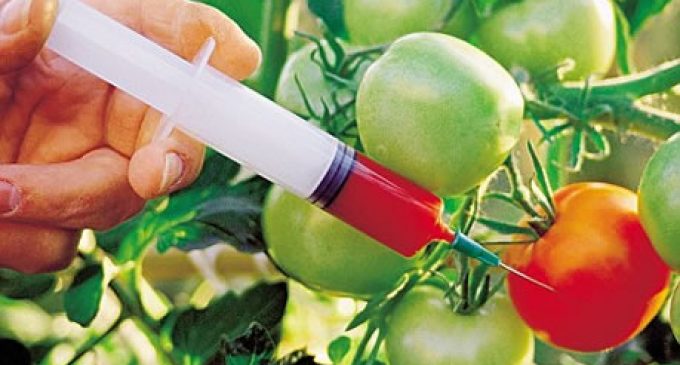Make GM food science research top priority: producers

Developing modern technologies and the genetic modification (GM) of crops and animals are the top two of eight research priorities identified by a group of primary producers bidding to influence the government’s agri-technology strategy, due to be launched this month.
The report – Feeding the Future: Innovation Requirements for Primary Food Production in the UK to 2030 – set out the industry’s top research and development focus over two decades for the first time, claimed the groups which commissioned it.
On GM, the report said researchers should prioritise “modern genetic and breeding approaches to improve the quality, sustainability, resilience and yield-led profitability of crops and farm animals”.
‘Modern genetic and breeding approaches’
Other research priorities included: interactions between soil, water and crop/animal processes; integrated management of crop weeds, pests and diseases; and the use of social and economic science to promote development, uptake and use of sustainable, resilient and profitable agricultural practice. (See full list below.)
The report – commissioned by the Agriculture and Horticulture Development Board (AHDB), the National Farmers’ Union (NFU), NFU Scotland, the Royal Agricultural Society of England (RASE) and the Agricultural Industries Confederation (AIC) – made five recommendations.
The top recommedation was that levy bodies and other producer groups should encourage joint innovation programmes and attract additional investment from research councils, government departments, TSB, the EU and other funding agencies.
They also urged that producers should be given greater influence in the decision-making of government departments, research councils and, where appropriate, higher education institutes and research institutes. (See full recommendations below.)
‘The clock ticking’
Tom Taylor, AHDB chief executive, underlined the need for action. “With limited research funding available and with the clock ticking, we believe it is vital to spell out the industry’s view on the research priorities for UK agriculture,” he said. “This document has to be the reference manual for our policy makers and funding providers for the next two decades.”
Jim Godfrey, farmer and member of the commissioning group, said: “This is the first time in my lifetime that UK primary producers have come together to identify their research and development priorities for the next 20 years. It is timely because government is developing its own agri-technology strategy to be launched in June and will be drawing on this report.”
Nigel Miller, president NFU Scotland, said that scientific and technological progress will be vital to meet the challenges of food security and climate change. “Investment in the right research and development will open the door to the levels of precision that will be needed at farm level to drive both output and carbon efficiency,” he said.
Research priorities
- Utilisation of modern technologies to improve the precision and efficiency of key agricultural management practices.
- Apply modern genetic and breeding approaches to improve the quality, sustainability, resilience and yield-led profitability of crops and farm animals.
- Use systems-based approaches to better understand and manage interactions between soil, water and crop/animal processes.
- Develop integrated approaches to the effective management of crop weeds, pests and diseases within farming systems.
- Develop integrated approaches to the management of animal disease within farming systems.
- Develop evidence-based approaches to value ecosystem service delivery by land users and incorporate these approaches into effective decision support systems at the enterprise or grouped enterprise level.
- Extend the training, professional development and communication channels for researchers, practitioners and advisers to promote delivery of the above targets.
- Improve the use of social and economic science to promote development, uptake and use of sustainable, resilient and profitable agricultural practice that can deliver affordable, safe and high-quality products.
Report recommendations
- Levy bodies and other producer groups should look to encourage joint innovation programmes and attract additional investment from research councils, government departments, TSB, the EU and other funding agencies.
- Producers should be given greater influence in the decision-making of government departments, research councils and, where appropriate, higher education institutes and research institutes to find integrated approaches to industry challenges rather than to promote narrow sectoral interests.
- There needs to be a greater integrated approach to providing advice, training and skills – both for producers and the R&D and consultancy base – that acknowledges the increasing policy emphasis given to land-based issues of food production, alternative land use, climate change, adaptation and mitigation and the protection of natural capital.
- The report’s implications for policy and strategy should be considered by both government and the funders of basic and strategic research. There needs to be consistency of policy and approach across different government departments with an interest in land and water use, food and energy production and the protection of natural capital.
- Research funding decisions need to protect the UK’s capacity for scientific excellence while addressing skills shortages in key areas, such as soil science and applied crop sciences. There also needs to be a better balance between fundamental and applied research and closer contact between science, advisory and farmer communities.

































